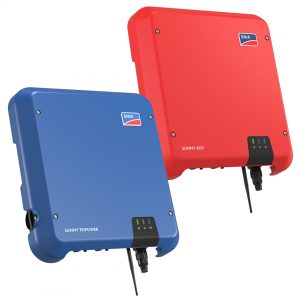INVERTERS

Solar Inverters: Powering the Future of Renewable Energy
As the world grapples with the imperative to transition towards cleaner and more sustainable energy sources, solar power has emerged as a frontrunner in the race to mitigate climate change. At the heart of every solar power system lies a critical component: the solar inverter.
I. Understanding Solar Inverters:
Solar inverters serve as the technological linchpin between solar panels and the electrical grid. Their primary function is to convert the direct current (DC) generated by solar panels into alternating current (AC) compatible with household appliances and the power grid. This transformation is essential because most of our daily electricity consumption relies on AC power.
II. Types of Solar Inverters:
a. String Inverters: Commonly used in residential and small commercial installations, string inverters are cost-effective and straightforward. They connect to a string of solar panels, converting the combined DC output into AC power. However, they may be susceptible to performance issues if one panel in the string underperforms.
b. Microinverters: Microinverters are installed directly onto individual solar panels, allowing for independent conversion of DC to AC. This enhances system efficiency by mitigating the impact of shading or panel malfunctions. While generally more expensive, microinverters provide a higher level of monitoring and optimization.
c. Central Inverters: Suited for large-scale solar installations, central inverters handle the conversion for multiple strings of solar panels. They offer high efficiency and cost savings but may be affected by the overall performance of the entire system.
d. Hybrid Inverters: These inverters facilitate the integration of solar power with energy storage systems, enabling homeowners to store excess energy for use during periods of low sunlight. Hybrid inverters are pivotal in advancing the adoption of solar energy in both grid-tied and off-grid applications.
III. Efficiency and Performance:
The efficiency of solar inverters plays a crucial role in overall system performance. Modern inverters are designed to operate at high efficiency levels, ensuring minimal energy losses during the conversion process. Additionally, advancements in Maximum Power Point Tracking (MPPT) technology enhance the inverter's ability to extract the maximum power from solar panels under varying conditions.
IV. Smart and Connected Inverters:
The integration of smart technologies into solar inverters has revolutionized the monitoring and control of solar power systems. Many inverters now come equipped with advanced monitoring platforms that allow users to track real-time energy production, detect issues, and optimize system performance remotely. This connectivity fosters a more informed and proactive approach to solar system management.
